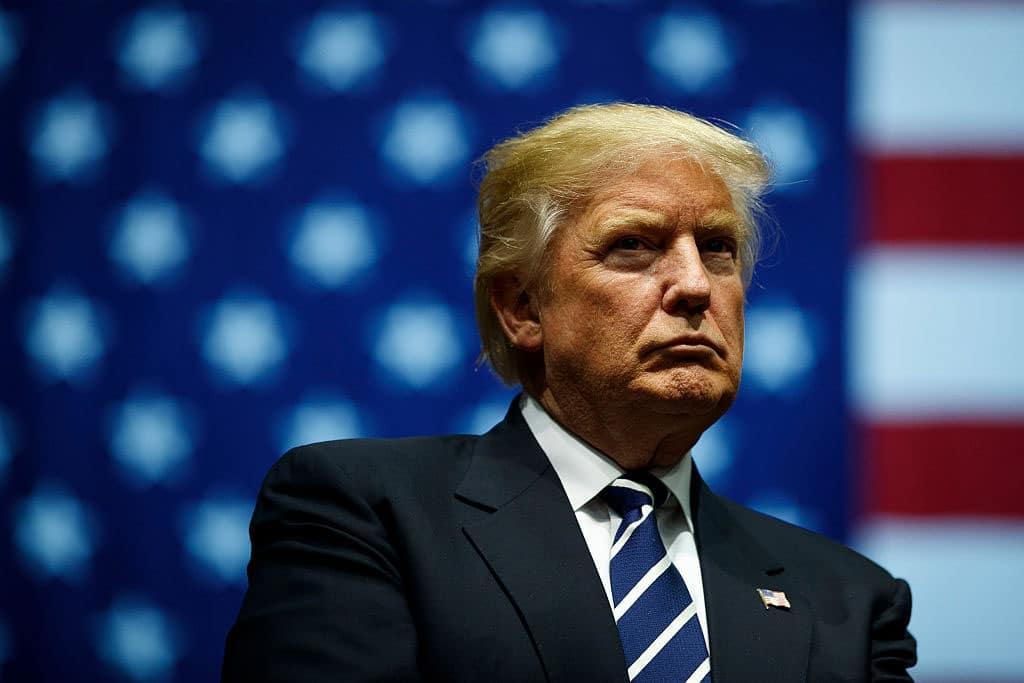 (Photo by Drew Angerer/Getty Images)
(Photo by Drew Angerer/Getty Images) “Now this is not the end. It is not even the beginning of the end. But it is, perhaps, the end of the beginning.”
These are Winston Churchill’s words, uttered at the end of another decisive but not seminal battle almost eighty years ago. But they are just as useful today, as our country has taken important but not yet final steps in this presidential transition.
Saturday morning marked an essential threshold for the nation, when most leading media organizations made an important but unofficial decision to project Joe Biden as the next president. Another important but unofficial milestone was reached that night, when Biden addressed the country as the widely recognized president-elect.
But another traditional turning point, a concession speech from the defeated candidate, had not yet occurred as of this writing. There are more than ten weeks before Biden will be sworn into office, and we have many miles – and many lawsuits and many recounts – to go before we sleep. Donald Trump promises to employ all means at his disposal to contest the election’s outcome. While his chances of success are exceedingly slim, Trump’s actions and statements over the next two-plus months could ease the path for a traditional peaceful transition, or alternatively leave the country in an unprecedented state of confusion as the incoming administration struggles to prepare to take office.
The vote-counting is over. But the legal fights, the political maneuvering and the veiled (and not so veiled threats) have barely begun. The good news is that we pretty much know where we’re going to end up on January 20. But the path to getting there could be difficult and painful.
Throughout his pre-presidential life, Trump’s reaction to unwinnable challenges – whether bankruptcies, divorces or casino closures – have taken on a recognizable pattern. First, he refuses to acknowledge likely defeat. Then he looks for scapegoats to blame for his loss. Finally, he simply walks away and reinvents himself for his next endeavor. That final step will be much more difficult, because walking away from 1600 Pennsylvania Avenue – willingly or otherwise– will be impossible without attracting a great deal of unflattering attention.
Several of Trump’s advisors have reportedly told him that the election is lost, and have attempted to convince him to at least allow for a low-drama transition (even without ever making a formal concession). He has resisted those efforts to date, but as the days and weeks pass and the lawsuits do not bear fruit, he will be forced to begin considering an exit strategy that allows him to leave office on terms that he can at least potentially present as his own.
Trump still publicly argues that he received more votes than Hillary Clinton in 2016, so it’s hard to imagine him ever publicly conceding this election to Biden. But the most important questions over the next several weeks are not about his words but his actions, because an outgoing president can still create a great deal of havoc before his successor is sworn into office.
The most important questions over the next several weeks are not about his words but his actions, because an outgoing president can still create a great deal of havoc before his successor is sworn into office.
In the last days of Watergate, a delegation of senior Republicans, led by Senator Barry Goldwater of Arizona and Representative John Rhodes of Ohio, went to the White House to tell Richard Nixon that is was time for him to go. It’s implausible to think of Mitch McConnell and Kevin McCarthy having the same type of conversation with Trump, and even harder to imagine Trump taking such advice from them or any other politician. But should the current situation still exist a month from now, it is possible to envision Wall Street titans who Trump still admires, such as Jamie Dimon and Steven Schwartzman, having a similar conversation with him.
It is widely assumed that Trump may decide to seek the presidency again in 2024. Thus, some of the president’s political advisors may decide that the best way to persuade him to stand aside is to suggest that a dramatic and defiant exit would be a better way to lay the groundwork for that potential comeback than a petulant and sullen departure.
But predicting Trump has always been hazardous duty. At noon on January 20, America will have a new president. What happens between now and then is anyone’s guess.
Dan Schnur teaches political communications at UC Berkeley, USC and Pepperdine. He hosts the weekly webinar “Politics in the Time of Coronavirus” for the Los Angeles World Affairs Council & Town Hall.























 More news and opinions than at a Shabbat dinner, right in your inbox.
More news and opinions than at a Shabbat dinner, right in your inbox.